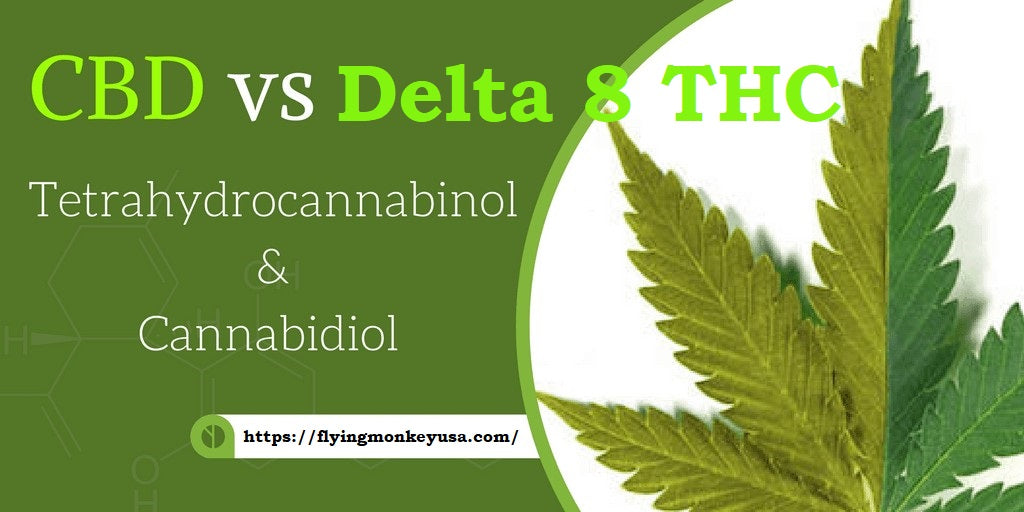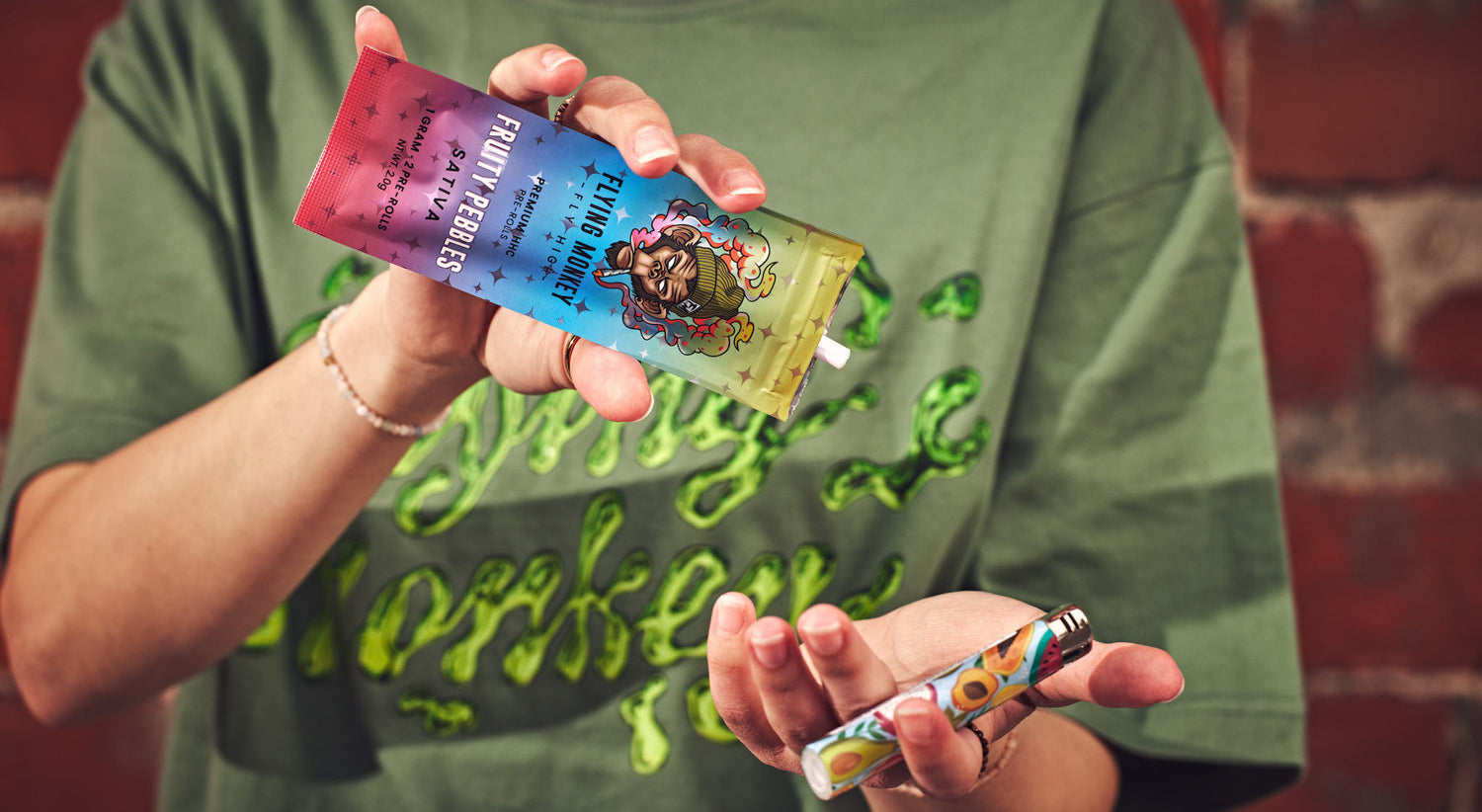Numerous distinct substances that can have various impacts on the body are present in cannabis plants. Hemp and marijuana are two distinct species found in Cannabis. These plants contain the cannabinoids THC (tetrahydrocannabinol) and CBD (cannabidiol). Hemp contains higher levels of CBD and lower levels of THC compared to marijuana, which has higher levels of THC.
What is CBD?
Cannabidiol, alternatively called CBD, is a naturally occurring molecule in the Cannabis sativa plant. Since CBD doesn't have any psychoactive effects, it is frequently utilized by those who don't want to feel "high." Because of these advantages, CBD is utilized for a variety of health problems.
What is Delta-8 THC
Delta-8 THC is a psychoactive substance found in both hemp and marijuana in different concentrations. It is often compared to Delta-9 THC which is found in Marijuana because of its similar chemical structure as well as effect. The only main difference between both is that Delta-8 is less potent which means it causes less high.
What makes both different?
Source
CBD is the second most abundant substance found in hemp. The leaves and buds of the cannabis plant are used to make Hemp-derived CBD oil. It is not produced in the roots or seeds of the plant; rather, it is only present in the aerial parts of the plant, which are the stems, flowers, and leaves that are situated above the soil surface.
Delta-8 THC is frequently extracted in concentrated form from cannabis. It is not naturally present in hemp in sufficient numbers to satisfy demand; on the contrary, it is only found in tiny amounts. The majority of hemp products are produced synthetically by converting CBD or Delta 9 THC to Delta 8 THC since the hemp plant doesn't contain a substantial amount of Delta 8.
Effect on ECS
CBD affects the endocannabinoid system (ECS) differently than the delta-8 THC. It does not bind the CB1 and CB2 receptors hence it does not get you high. The way it reacts with ECS is yet unclear but it comes with a number of health benefits.
Delta-8 THC effects on your ECS are found to be quite similar to the ones of delta-9 THC. According to studies, delta-8-THC activates the CB1 receptors in your ECS to produce psychoactive effects this explains the kind of high one feels with delta-8 THC. Its CB2 effects are not as significant as CB1 but they are on the therapeutic and medical aid side.
Potential Benefits
CBD is typically recognized as a secure medication when used externally or taken orally. Scientific research has established the medicinal value of CBD. Scientists believe that CBD oil prevents seizures by decreasing inflammation in the brain and maintaining consciousness levels. Due to its inhibiting effects, CBD oil helps individuals control their drug cravings. Men and women who used CBD oil reportedly experienced reduced cravings when they abstained from drugs, according to various studies. The results are significant because they suggest that CBD oil might be a helpful aid for those seeking rehabilitation.
Delta-8 THC is found to be effective for nausea and the overall immune system. It gives the feeling of relaxation and pain relief without getting you extremely high. Less cognitive distortions such as a distorted sense of time, problems with short-term memory, and difficulty concentrating appear to be produced along with slightly lower levels of euphoria.
Does it get you high?
CBD does not cause intoxication, but to think that it has no psychoactive effects is also not true. Your consciousness does alter with CBD and some of the possible effects include causing a light mood, less discomfort, and relief from physical pain. CBD products that are available in the market, in fact, contain trace quantities of THC.
Delta-8 THC does get you high. Its effects are milder than that of delta-9 THC but the high can last upto anywhere from 2 hours to 10 hours, depending on the potency and the method you use to consume delta-8. It does leave some after-effects than can linger on for a longer period of time.
Drug Test
CBD is not generally measured during a drug test. It generally looks for THC traces which is a product of marijuana and is generally related to getting one high. It only makes sense to examine the THC levels because originally, CBD does not have any psychoactive elements.
THC can be detected on a test anywhere from a few days for single use and over a month for heavy daily marijuana smokers, depending on the frequency of usage. There are some variants of CBD in the market like “full spectrum” which contains some amount of THC. These can fail you in a drug test and not otherwise.
Delta-8 THC can straightforwardly fail you in drug tests because it contains noticeable amounts of THC.
Legal Status
Delta-8 THC and CBD derived from hemp are considered legal on the federal level in the US whereas marijuana-driven delta-8 THC is not legal. The legality is intact as long as the hemp products contain less than 0.3% delta-9 THC based on the dry weight.
Final word
Delta-8 THC and CBD have different effects on the brain even though they are sourced from the same plant. Although delta-8 THC is milder than delta-9, it still affects ECS (CB1 and CB2) which results in making you euphoric. CBD has healing properties but does not make you high. Both provide identical health benefits and have somewhat similar adverse effects when taken in excessive amounts.

